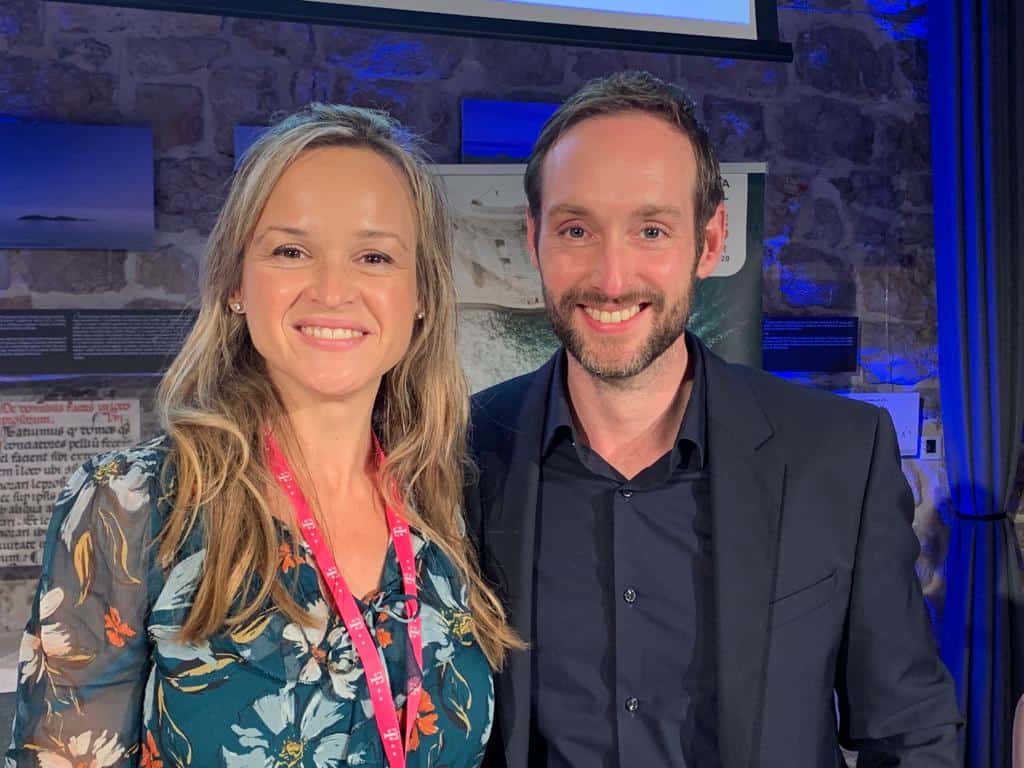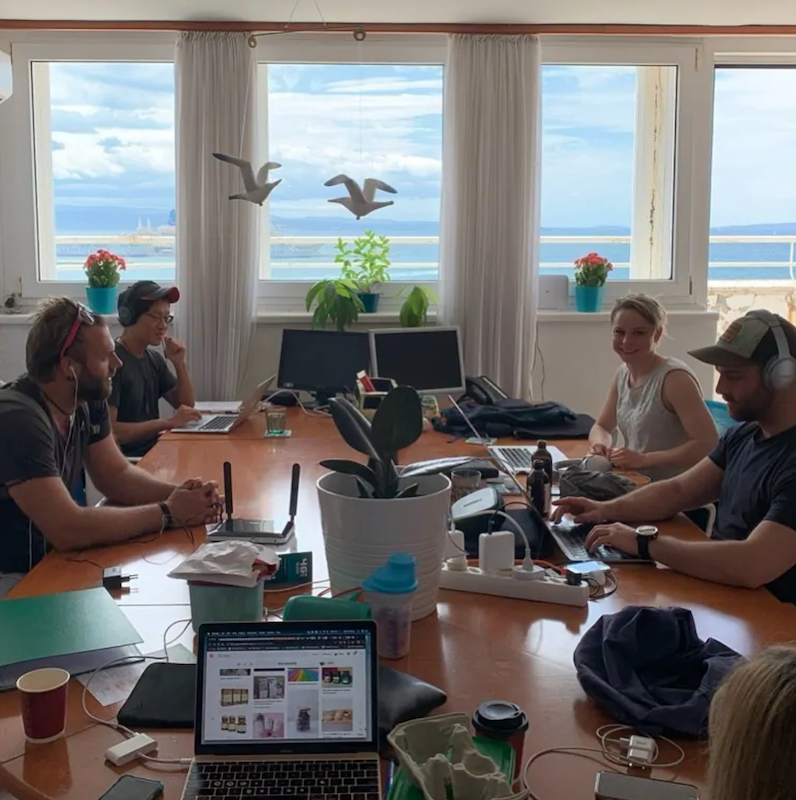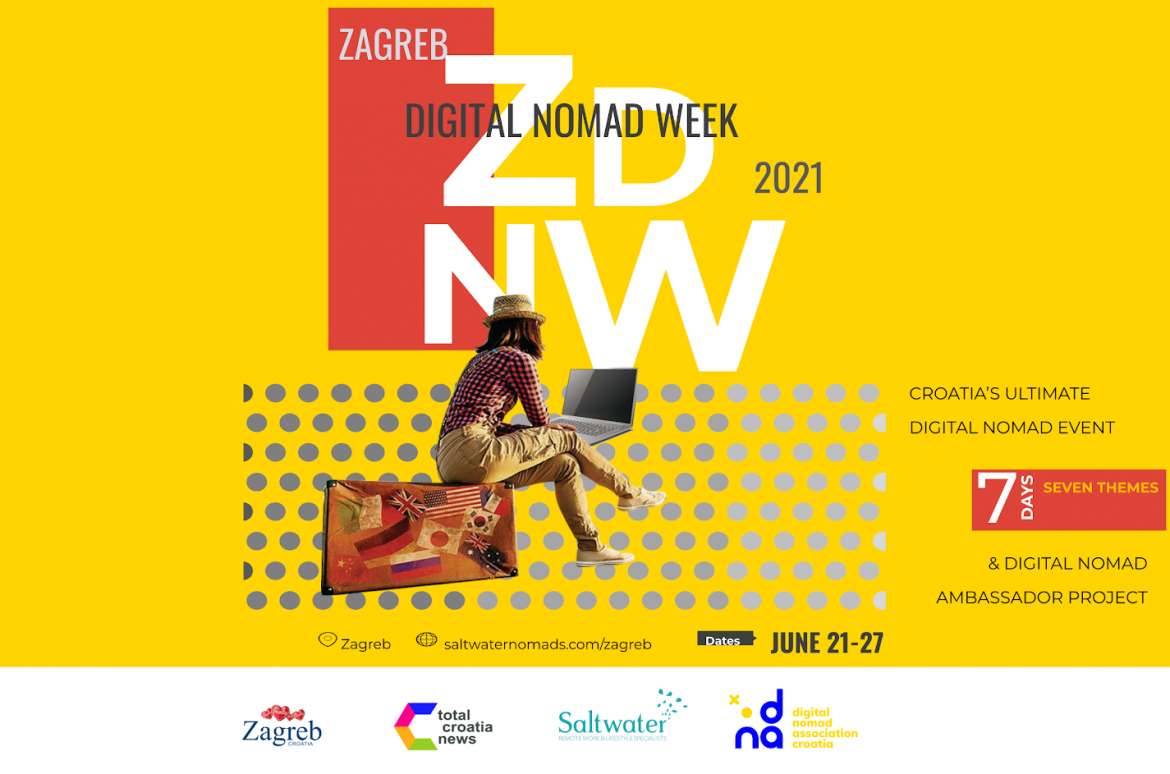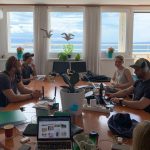They come from all over the world, live with complete freedom of movement, work from home, a cafe, or a distant island. When choosing a location, the most important condition is a fast and quality internet connection, hospitality, and security. They are digital nomads, highly qualified foreigners, mostly IT experts, who are increasingly discovering Croatia as a unique piece of paradise on Earth, and Split seems ideal for their needs, reports Slobodna Dalmacija.
Thanks to amendments to the Aliens Act, Croatia has introduced the concept of digital nomads since the beginning of this year, who now have preferential tax treatment, which facilitates their decision to choose Croatia as their place of residence and work.
They can stay in Croatia for up to a year. The introduction of digital visas for digital nomads was initiated by entrepreneur Jan de Jong, a Dutchman who lives and works in Split. More and more people work remotely, and he sees this as an opportunity for the Croatian economy.
He is the co-founder of the Croatian Digital Nomads Association (DNA) with Tanja Polegubić, a returnee from Australia who has also been living and working in Split for several years. The association’s main goals are to provide general information to digital nomads about life and work in Croatia, educate, connect digital nomads with service providers, and present their problems to the authorities.

“Split is already a natural choice for many digital nomads, just like other cities on the coast. But that could change if some changes don’t happen, that is, if the city doesn’t open up to digital nomads. When I was looking for a coworking space to work in 2015, I searched the entire Adriatic coast.
I spent a lot of time in Zadar, Trogir, but Split attracted me especially. There is something in it. Everything suits me here: it is neither too big nor too small. There are a lot of quality restaurants and bars, and there is a big international community. At the same time, the locals speak English well,” says Tanja, owner of the company “Saltwater,” an aid to digital nomads as it provides everything one may need, from finding a workspace, connecting people, organizing conferences, various events, conferences and more, and is a member of the Business Incubator of the Croatian Chamber of Commerce of the Split County Chamber.
Tanja said that digital nomads in Split work from home, i.e., from rented apartments, hostels, hotels, or coworking spaces in several Split locations.
“This has been an interesting year, and I have befriended many people who have stayed in the city. Most like to live in a circle around the city center and in the Palace. Varoš, Bačvice, Meje are popular with them … in fact, those neighborhoods from where they can reach the city center on foot in a short time. They mostly stay in private apartments and less in hotels because they are too expensive for them.
But the problem is the short rent they get from private renters who, of course, find it more cost-effective to give the apartment to a typical tourist rental that is expensive for nomads. Even the off-season offer of social life, which weakens after the summer, does not favor the arrival of nomads for whom the social aspect is important, the offer of the destination where they stay, the diversity of content around them because they want to meet new places and people. True, there was a pandemic that disrupted everything, but we need to adapt.

On the other hand, this environment is quite interesting for them because of their hospitality and security, especially for families with children, the health system has a good reputation, the climate is mild,” says Tanja, who receives many inquiries about Croatian cities from digital nomads. The conditions they need to meet are proof of constant income, proof that they are digital nomads, that is, that they are not coming to Croatia to sell something but to do their job from this destination.
To help foreigners come to Croatia, a DNA association was established.
“The goal is to support digital nomads – as well as local businesses. The association deals with information, education, community networking, certification, and representation of digital nomads and various businesses before various Croatian institutions. Ways are being devised in which digital nomads can contribute to society, for example, around animal welfare or environmental protection.
It also focuses on tenancy topics because we know that many tenants and students are evicted from rented apartments when the tourist season begins. We will organize “certified” service providers so that digital nomads know that they will be protected,” says Tanja Polegubić, believing that Split and Croatia have an excellent chance of becoming one of the favorite destinations of digital nomads if they open their hearts.
While Dubrovnik has gone the furthest in this regard, Split is also turning towards such modern trends. For example, the Split hotel “Marvie” offers affordable packages for long-term stays. As much as a 50 percent discount for stays of 28 days or longer, even in the middle of the summer season. Guests have at their disposal a separate co-working space with high-speed internet of 200 Mbps, a projector with a screen and a flipchart, which can simultaneously fit 7 people, ergonomic chairs, and everything that makes the stay more comfortable.
Namely, teleworking is a growing trend with exceptional economic potential, which is supported by predictions that by 2022 there will be more than 1.87 billion workers in the world whose work will take place online regardless of location. Therefore, “Marvie” is the first Croatian hotel to create an offer fully adapted to the needs of teleworkers.
Jan de Jong points out that digital nomads are an opportunity that we must not ignore. The main advantage for Croatia is year-round tourism and the arrival of highly paid workers who would not take jobs and spend their salaries in Croatia.
“Digital nomads and marketing are important for Croatia because they share their experiences, videos, and photos with their families, but also on social networks, which is free promotion. Since the introduction of visas, 33 of them have applied, and four have been approved, while the rest are being considered,” he said.

Learn more about Zagreb Digital Nomad Week 2021 Announced by Saltwater Nomads/Zagreb Tourist Board HERE.
Learn more about the Dubrovnik Digital Nomads-in-Residence program
Saltwater Nomads’ Tanja Polegubic on Dubrovnik Digital Nomad-in-Residence Programme
Dubrovnik Mayor Mato Frankovic on Digital Nomads, US Flights, 2021 Season
For the latest on digital nomads in Croatia, follow the dedicated TCN section.









